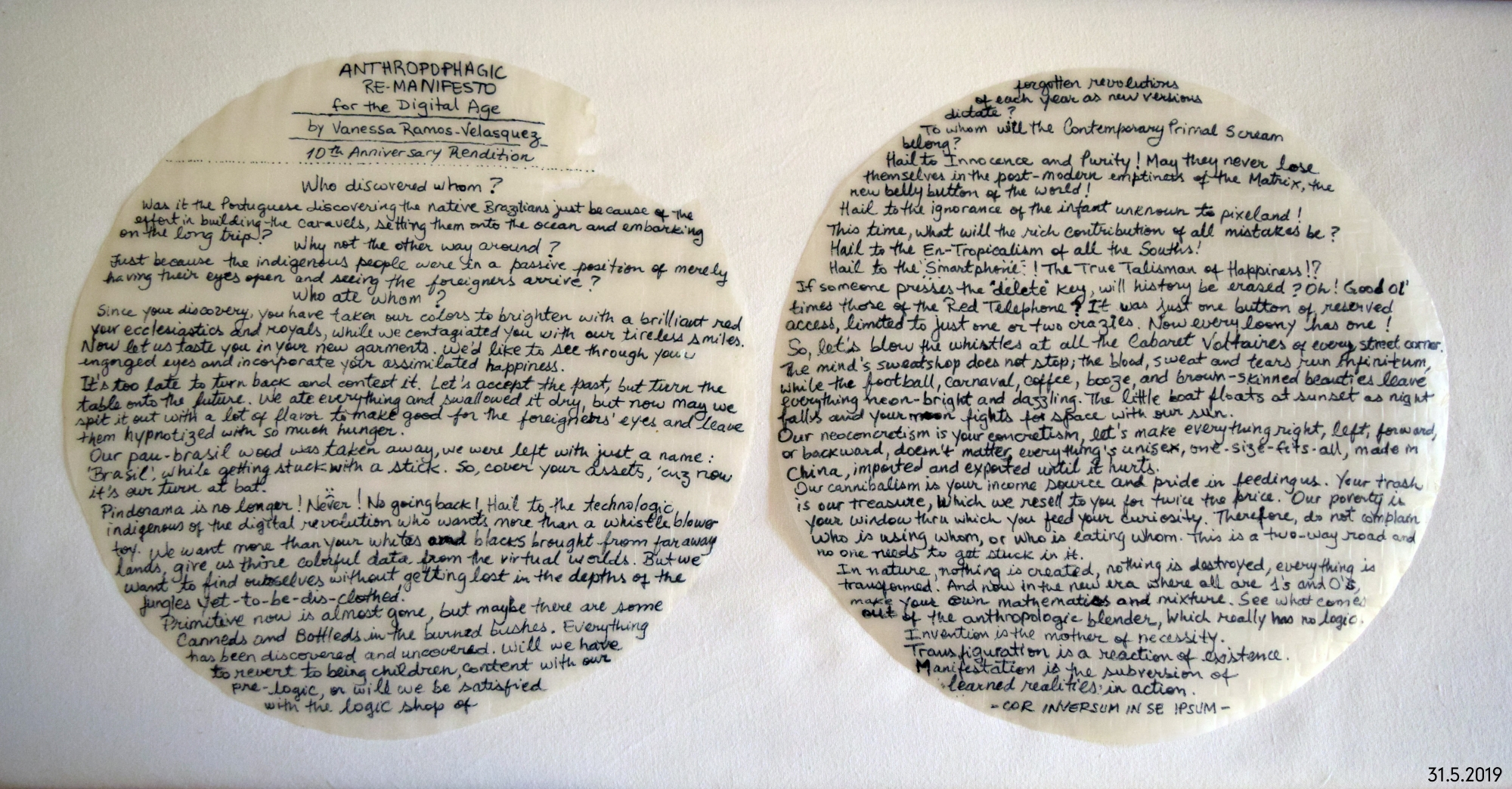Anthropophagic Re-Manifesto for the Digital Age
10th Anniversary Rendition
DOI:
https://doi.org/10.31273/eirj.v7i2.465Keywords:
digital anthropophagy, anthropophagic Re-Manifesto for the digital age, manifesto antropófago, Oswald de Andrade, antropofagia, Brazilian modernism, digital age, colonisation, Vilém Flusser, Aílton Krenak, BauhausAbstract
In 2009 I started writing the essay Digital Anthropophagy and its companion piece, the manifesto-poem Anthropophagic Re-Manifesto for the Digital Age. Being an artist from Brazil, I could not escape the cultural mystique of ‘Anthropophagy’. For those unfamiliar with the term, the etymology has a Greek origin dating back to the mythological Kronos (Saturn) eating his own son – ‘Anthrōpophagia’: ‘Anthropos’= human being + ‘phagein’= to eat, i.e., an eating of a human. The words ‘Anthropophagy’ and ‘Anthropophagus’ were transplanted by the European conquistadors in the late 1400s/early 1500s to the land masses renamed ‘America’ and ‘The Caribbean’ at the onset of colonialism. Starting at this period, some native ethnicities of the ‘Amerindian’ populations have been described as practitioners of ritual Anthropophagy and/or Cannibalism. ‘Cannibalism’ itself supposedly finding its root in a misspelling or ironic naming – ‘Canib’[iii] – by Columbus when describing the Carib people of Antilles/Caribbean Islands during his navigational enterprises between 1492-1504.
In 1928, Oswald de Andrade devoured Brazilian colonial history itself writing the ‘Manifesto Antropófago’, an adjective form of the term, meaning a Manifesto that possesses the agency to eat. The proposition of the Brazilian Moderns was to devour what comes from outside (‘First World’ novelties), absorb their useful ‘otherness’ in order to output something uniquely Brazilian. Thus ‘Antropofagia’ is appropriated and forever transformed in the 1920s São Paulo into a Brazilian avantgarde. Antropofagia is considered by some critics to be perhaps the only true Brazilian artistic canon. The concepts of this cultural icon have inevitably impregnated my own artworks, especially in my condition of migrant since the age of 19, living in a constant state of becoming ‘other’ somewhere.
Downloads

Downloads
Published
Issue
Section
License
Authors who publish with this journal agree to the following terms:
Authors retain copyright and grant the journal right of first publication with the work simultaneously licensed under a Creative Commons Attribution License (CC-BY), which permits use and redistribution of the work provided that the original author and source are credited, a link to the license is included, and an indication of changes which were made. Third-party users may not apply legal terms or technological measures to the published article which legally restrict others from doing anything the license permits.
If accepted for publication authors’ work will be made open access and distributed under a Creative Commons Attribution (CC-BY) license unless previously agreed with Exchanges’ Editor-in-Chief prior to submission.
Authors are able to enter into separate, additional contractual arrangements for the non-exclusive distribution of the journal's published version of the work (e.g., post it to an institutional repository or publish it in a book), with an acknowledgement of its initial publication in this journal.
Authors are permitted and encouraged to post their work online (e.g., in institutional repositories or on their website) prior to and during the submission process, as it can lead to productive exchanges, as well as earlier and greater citation of published work. (see: The Effect of Open Access)
